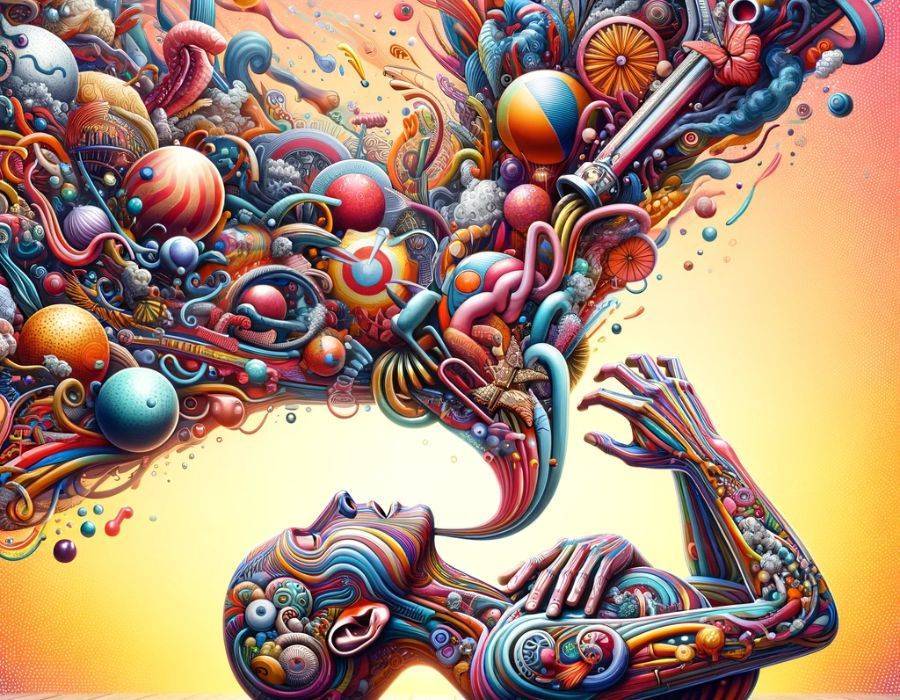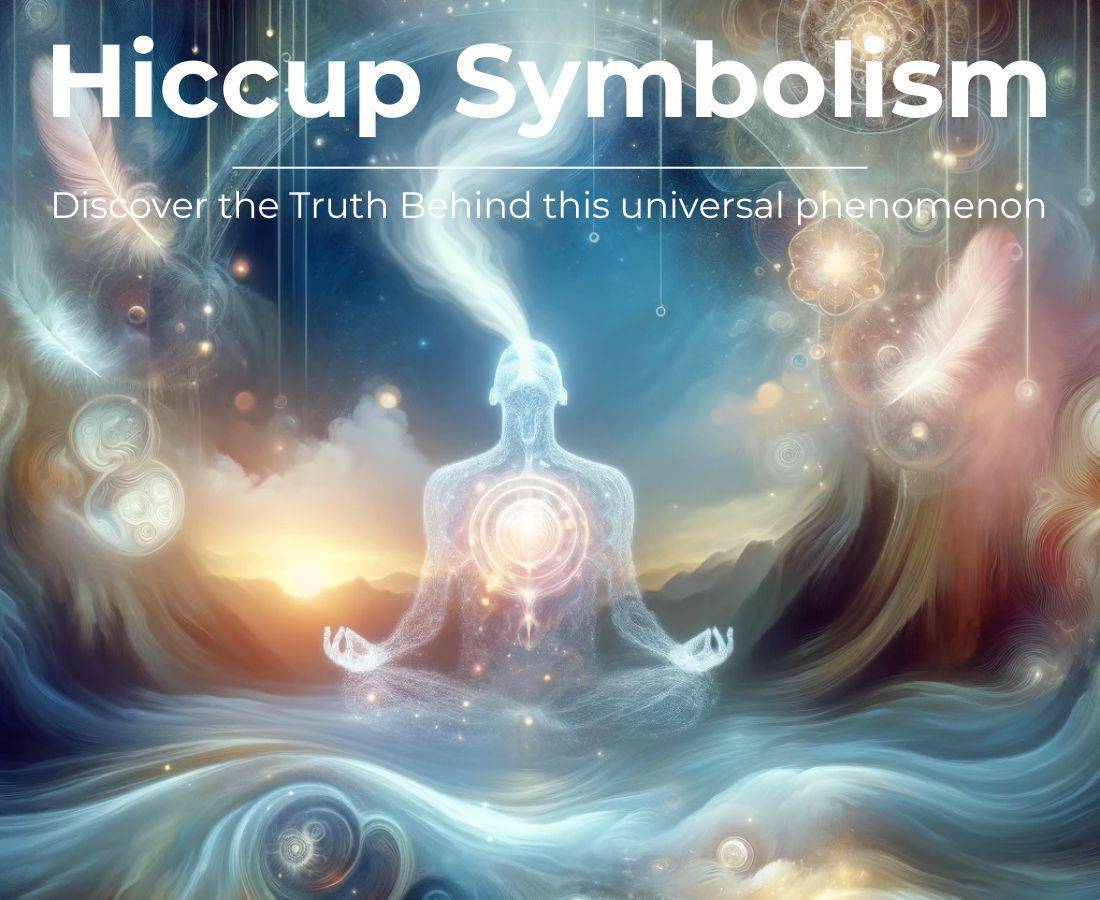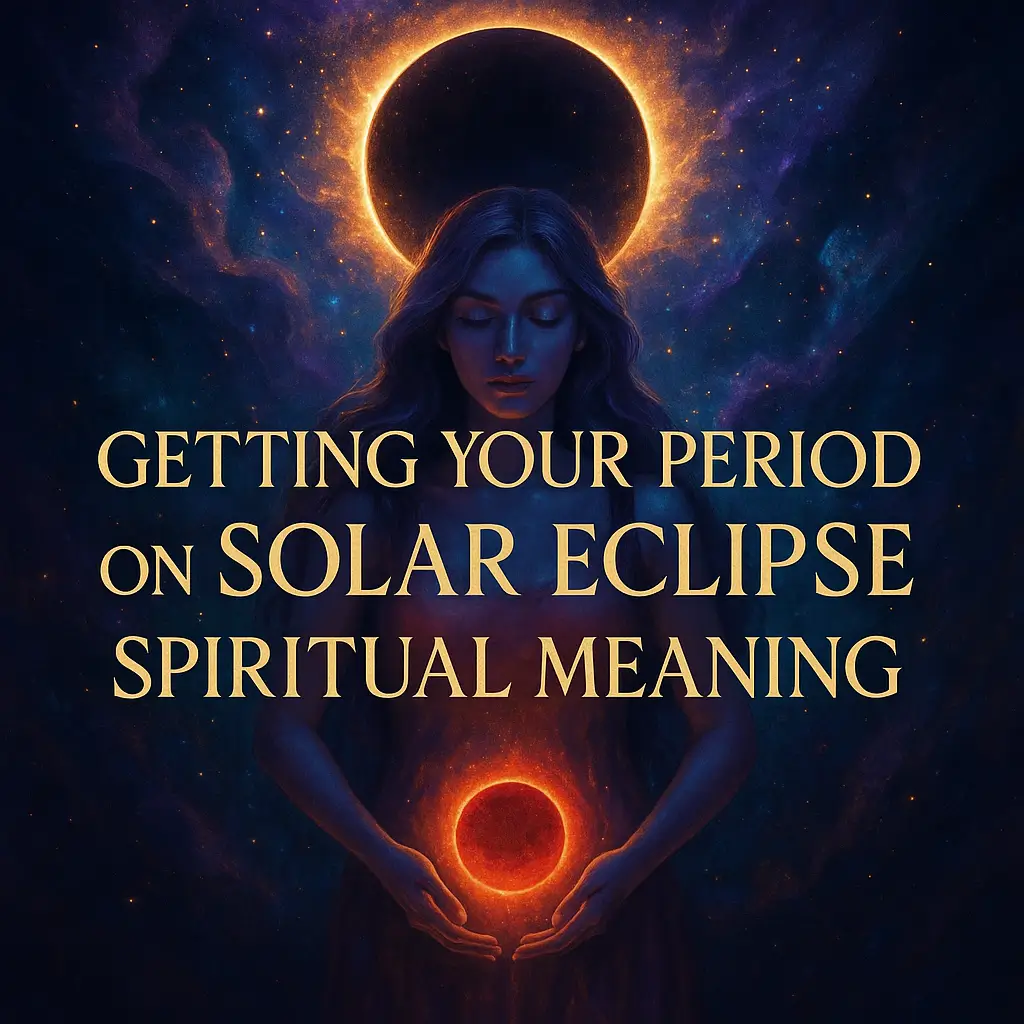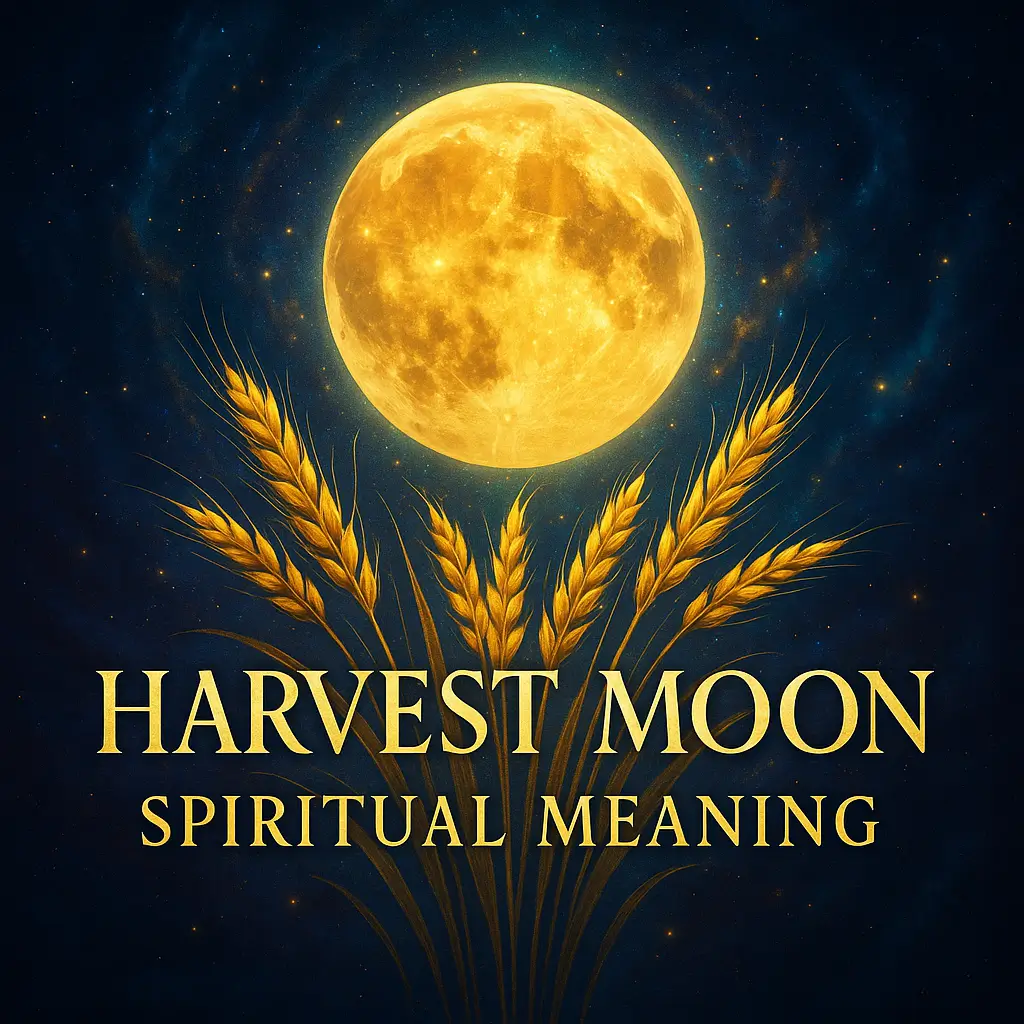Table of Contents
- 1 Key Takeaways
- 2 Hiccup Symbolism: Unraveling Meaning Across Cultures and Beliefs
- 2.1 The Emotional Language of Hiccups
- 2.2 Spiritual Messages: Hiccups as Divine Communication
- 2.3 Cultural Perspectives on Hiccup Symbolism
- 2.4 Hiccup Symbolism as Messengers of Change
- 2.5 Hiccup Symbolism in Dreams and Subconscious Messages
- 2.6 Hiccup Symbolism and Social Connections
- 2.7 Medical Reality and Spiritual Symbolism: Finding Balance
- 2.8 Hiccup Remedies: Ancient Wisdom and Modern Science
- 2.9 Hiccup Myths and Folklore Around the World
- 2.10 Personal Hiccup Journeys: Stories of Transformation
- 3 Frequently Asked Questions
- 3.1 What does it mean spiritually when you have hiccups?
- 3.2 Are hiccups connected to emotions and stress?
- 3.3 What do hiccups mean in different cultures?
- 3.4 Why do people believe hiccups mean someone is thinking about you?
- 3.5 What do hiccups symbolize in dreams?
- 3.6 Can hiccups indicate life changes or transitions?
- 3.7 How do traditional remedies for hiccups work?
- 3.8 What is the connection between hiccups and energy imbalance?
- 3.9 Why do hiccups appear during suppressed emotions?
- 3.10 How should I interpret hiccups appearing at significant moments?
Key Takeaways
| Topic | Key Insight |
|---|---|
| Emotional Connection | Hiccups are often linked to suppressed emotions, stress, or heightened excitement. |
| Spiritual Symbolism | Many cultures interpret hiccups as messages from spirits, ancestral guidance, or energetic shifts. |
| Cultural Beliefs | Different societies attribute hiccups to gossip, personal growth, or divine intervention. |
| Life Transitions | Hiccups may symbolize impending personal change or decision-making moments. |
| Social Connections | Widespread beliefs suggest hiccups indicate someone is thinking about or talking about you. |
| Dream Symbolism | Dream hiccups may represent subconscious messages or unexpressed emotions. |
| Ancient & Modern Remedies | Traditional and scientific cures for hiccups often focus on resetting breathing patterns and nervous system responses. |
Hiccup Symbolism: Unraveling Meaning Across Cultures and Beliefs
Have you ever experienced a sudden attack of hiccups and wondered if it might be more than just a physiological response? I certainly have. When those unexpected spasms strike during an important conversation or quiet moment, I can’t help but wonder if the universe is trying to tell me something. In ancient Russia, people believed hiccups were a sign that someone was talking about you behind your back. Meanwhile, Chinese medicine viewed hiccups as an interruption in the body’s energy flow, suggesting deeper significance beyond mere physical symptoms. These cultural interpretations hint at hiccup symbolism that spans centuries and continents, offering us insight into how our ancestors viewed these mysterious bodily occurrences.The Emotional Language of Hiccups
Hiccup symbolism connects deeply to our emotional state. Those involuntary contractions of the diaphragm often appear at moments of heightened emotion or stress. When we experience nervousness or anxiety, our breathing patterns change – becoming shallow or irregular – creating the perfect conditions for hiccups to emerge. This connection hasn’t gone unnoticed in cultural interpretations of hiccups. In many traditions, hiccups are seen as a physical manifestation of suppressed emotions trying to surface. Think about when hiccups typically strike – during times of excitement, after laughing too hard, or when you’re trying to hide strong feelings. Psychologists have noted this connection between emotional states and physical symptoms. According to Healthline, stress and emotional excitement are among the common triggers for hiccup episodes, suggesting our bodies communicate emotions through these involuntary responses.
This emotional aspect of hiccup symbolism suggests that when hiccups appear, it might be worth pausing to examine what feelings you might be suppressing or experiencing intensely.
Psychologists have noted this connection between emotional states and physical symptoms. According to Healthline, stress and emotional excitement are among the common triggers for hiccup episodes, suggesting our bodies communicate emotions through these involuntary responses.
This emotional aspect of hiccup symbolism suggests that when hiccups appear, it might be worth pausing to examine what feelings you might be suppressing or experiencing intensely.
Spiritual Messages: Hiccups as Divine Communication
Across various spiritual traditions, hiccups have been interpreted as forms of cosmic communication – messages from beyond our physical realm. In some Eastern European folklore, hiccups indicate that someone is thinking about you. The remedy? Guessing who it might be. If you correctly identify the person, tradition says your hiccups will immediately cease. This reflects a belief that hiccups are a spiritual string pulled by others’ thoughts – a metaphysical connection between people separated by distance. Similarly, in certain Native American traditions, hiccups were seen as temporary visitations from ancestral spirits trying to deliver messages or warnings. In more contemporary spiritual practices, hiccups might be interpreted as energy blockages or shifts. Similar to how chakras and auras function in spiritual belief systems, hiccups could indicate energy centers realigning or responding to external spiritual influences.
Some spiritual healers suggest that paying attention to when hiccups occur – particularly noting the time of day, who’s present, and what’s being discussed – might reveal patterns that point to spiritual messages trying to break through.
In more contemporary spiritual practices, hiccups might be interpreted as energy blockages or shifts. Similar to how chakras and auras function in spiritual belief systems, hiccups could indicate energy centers realigning or responding to external spiritual influences.
Some spiritual healers suggest that paying attention to when hiccups occur – particularly noting the time of day, who’s present, and what’s being discussed – might reveal patterns that point to spiritual messages trying to break through.
Cultural Perspectives on Hiccup Symbolism
The meaning of hiccups varies dramatically across different cultural contexts, showing how universal bodily functions take on distinct symbolic meanings. In Japanese folklore, hiccups were sometimes associated with being the subject of someone’s lies or deception. This connection reflects how bodily disruptions were linked to social dynamics and interpersonal relationships. Mexican traditions often connect hiccups to growth in children – a folk belief suggests that children hiccup when they’re experiencing a growth spurt. Chinese traditional medicine takes a more holistic approach, viewing hiccups as a symptom of energy imbalance, usually involving the stomach meridian and its connection to emotional states. In parts of Africa, persistent hiccups have been interpreted as messages from ancestors, particularly if they occur during important decision-making moments or ceremonial occasions. These varying cultural interpretations demonstrate how hiccup symbolism serves as a mirror reflecting each society’s broader beliefs about body-mind connections, spiritual worlds, and social relationships. Similar to how bat symbolism varies across cultures yet maintains certain universal themes, hiccups carry both specific cultural meanings and common symbolic threads centered on communication, energy, and emotional expression. Understanding hiccup symbolism across these diverse perspectives enriches our appreciation of how even the most mundane bodily functions can carry profound symbolic meaning in human experience.Hiccup Symbolism as Messengers of Change
Throughout history, hiccups have been interpreted as physical messengers signaling life transitions and personal transformations. When those involuntary contractions arrive unexpectedly, some spiritual traditions view them as harbingers of change about to enter your life. This perspective invites us to consider: what might be shifting in our circumstances when hiccups suddenly appear? In Polish folklore, hiccups were believed to appear when a person was on the verge of an important life decision or transition. The unpredictable nature of hiccups – coming without warning and departing just as mysteriously – mirrors how significant life changes often unfold. This symbolic connection suggests hiccups serve as bodily reminders to prepare for upcoming shifts in our life journey. In Hinduism, hiccups are sometimes associated with the concept of prana (life force) adjusting itself during periods of energy transformation. According to research, hiccups involve neural pathways connected to emotional processing centers, potentially explaining why they’re often triggered during times of emotional transition.
This aspect of hiccup symbolism suggests paying attention to what’s changing in your life when hiccups arrive. Are you starting a new job? Moving to a new home? Beginning or ending a relationship? The hiccup’s message might be encouraging you to embrace these transitions rather than resist them.
In Hinduism, hiccups are sometimes associated with the concept of prana (life force) adjusting itself during periods of energy transformation. According to research, hiccups involve neural pathways connected to emotional processing centers, potentially explaining why they’re often triggered during times of emotional transition.
This aspect of hiccup symbolism suggests paying attention to what’s changing in your life when hiccups arrive. Are you starting a new job? Moving to a new home? Beginning or ending a relationship? The hiccup’s message might be encouraging you to embrace these transitions rather than resist them.
Hiccup Symbolism in Dreams and Subconscious Messages
Dream hiccups carry particularly potent symbolic meanings across various cultures. When hiccups appear in dreams, they often represent suppressed emotions or thoughts trying to break through to conscious awareness – similar to how moths entering a home symbolize messages from the subconscious. In certain Celtic dream interpretations, dreaming of hiccups indicates something important you’ve forgotten needs attention. The hiccups represent your inner wisdom trying to remind you of overlooked matters. This symbolic meaning aligns with modern psychological understanding that dreams often process unresolved issues from waking life. Interestingly, some dream analysts connect hiccup dreams with concerns about public embarrassment or social discomfort. The fear of hiccuping in inappropriate situations mirrors deeper anxieties about social acceptance and judgment. If hiccups appear in your dreams, consider what emotions or truths you might be trying to contain that need healthy expression. Shamanic traditions view dream hiccups as evidence that your higher self is attempting to deliver important messages. The disrupted breathing pattern symbolizes interrupted communication between conscious and unconscious realms, suggesting you pay closer attention to your intuition and inner guidance.Hiccup Symbolism and Social Connections
Perhaps the most widespread hiccup belief involves social connections – the idea that hiccups indicate someone is thinking or talking about you. This interpretation spans cultures from Eastern Europe to parts of Asia and South America, suggesting a collective human intuition about hiccups as social connectors. In Romania, tradition suggests that if you hiccup, someone misses you or speaks fondly of you. The more intense the hiccups, the stronger the feelings that person has toward you. Similar beliefs exist in Brazil, where hiccups are thought to indicate someone is remembering you with strong emotion. This aspect of hiccup symbolism relates to the broader human need for connection and belonging. Our bodies, as living antennas, might respond to energetic bonds with others in ways science doesn’t fully comprehend yet. Just as finding ladybugs in your house may symbolize good fortune arriving, hiccups might signal that positive social energy is flowing toward you. When considering this interpretation, pay attention to who comes to mind during a hiccup episode. Your intuition might reveal who’s thinking about you. Some traditions recommend saying different names aloud during hiccups – when the hiccups stop, you’ve identified the person thinking of you.Medical Reality and Spiritual Symbolism: Finding Balance
While exploring hiccup symbolism, it’s important to acknowledge the physiological reality behind these mysterious spasms. Medically speaking, hiccups occur when your diaphragm contracts involuntarily, causing your vocal cords to close suddenly and creating that distinctive “hic” sound. This scientific understanding doesn’t diminish symbolic interpretations but rather complements them. Many spiritual traditions recognize that physical processes often carry metaphysical significance. The diaphragm’s central role in both breathing and hiccups connects symbolically to the flow of life energy through our bodies. When hiccups persist unusually long, both medical wisdom and spiritual symbolism suggest paying attention. Physically, prolonged hiccups might indicate a health concern needing medical attention. Symbolically, they might represent persistent messages from your higher self that you’ve been ignoring. The wisdom in hiccup symbolism lies in finding balance between practical considerations and spiritual meaning. When hiccups arrive, you might address both dimensions – try traditional remedies while also reflecting on what messages they might carry for your life journey.Hiccup Remedies: Ancient Wisdom and Modern Science
Throughout history, people have developed fascinating cultural remedies for hiccups that blend practical solutions with symbolic meaning. In ancient Rome, physicians recommended startling the affected person with unexpected news—believing that redirecting the body’s attention could reset the diaphragm’s spasms. Similarly, traditional Chinese medicine practitioners have long used acupressure points at the base of the skull to release blocked qi (energy) causing hiccups, treating both the physical symptom and its energetic imbalance. These traditional approaches reveal something profound: hiccup treatments often work by shifting our awareness—whether through physical sensation, emotional surprise, or mental redirection. The effectiveness of these methods suggests hiccups exist in that fascinating borderland between our conscious and autonomic nervous systems, responding to both physical and psychological interventions. Modern neuroscientists have discovered that many traditional hiccup remedies activate the vagus nerve, which helps regulate breathing patterns. When you hold your breath, drink water quickly, or swallow sugar, you’re essentially “resetting” this nerve pathway. According to research published in the National Library of Medicine, this neurological connection explains why such diverse remedies can effectively stop hiccups.
This intersection between ancient wisdom and modern science reflects the dual nature of hiccups themselves. They remind us that even the most seemingly random bodily functions can connect us to both our ancestors’ symbolic understanding and our contemporary scientific knowledge—giving us multiple pathways to address the same experience.
Modern neuroscientists have discovered that many traditional hiccup remedies activate the vagus nerve, which helps regulate breathing patterns. When you hold your breath, drink water quickly, or swallow sugar, you’re essentially “resetting” this nerve pathway. According to research published in the National Library of Medicine, this neurological connection explains why such diverse remedies can effectively stop hiccups.
This intersection between ancient wisdom and modern science reflects the dual nature of hiccups themselves. They remind us that even the most seemingly random bodily functions can connect us to both our ancestors’ symbolic understanding and our contemporary scientific knowledge—giving us multiple pathways to address the same experience.
Hiccup Myths and Folklore Around the World
The rich tapestry of hiccup folklore around the world offers a window into how different cultures interpret these mysterious spasms. In parts of the Philippines, hiccups are sometimes attributed to ancestors trying to communicate with you, particularly during significant personal decisions. The cure? Speaking the names of deceased relatives aloud until the hiccups stop, signifying that the correct ancestor has been acknowledged. Irish folklore takes a different approach, suggesting that hiccups indicate someone is stealing your drinks without your knowledge. The remedy involves crossing your thumbs or making a sign of the cross over your cup—symbolically protecting what’s yours. This belief suggests a connection between hiccups and vigilance against deception or betrayal. Perhaps the most widespread hiccup superstition claims that hiccups mean someone is thinking about you. Variations of this belief appear across cultures from Latin America to Eastern Europe, though with fascinating distinctions. In Brazil, hiccups indicate someone misses you, while in parts of Russia, they suggest someone is criticizing you behind your back. Similar to how finding a black beetle in your house carries different meanings across cultures, hiccups take on varied interpretations while maintaining their core connection to social relationships. These cultural interpretations remind us that hiccups—like many involuntary bodily responses such as sneezing, yawning, or shivering—have long been viewed as meaningful signals rather than mere physiological quirks. The persistence of these beliefs across continents suggests something universally compelling about connecting our bodily experiences to our social and spiritual worlds.Personal Hiccup Journeys: Stories of Transformation
Beyond cultural interpretations, many people report personal experiences where hiccups seemed to arrive at pivotal moments of change or decision in their lives. These anecdotes, while not scientifically verified, offer intriguing glimpses into how we find meaning in bodily experiences. Some describe persistent hiccups appearing during major life transitions—a period between jobs, relationships, or homes—only to disappear once a decision was made or a new path chosen. Others report hiccups occurring during moments of significant emotional suppression, as if the body was physically expressing what the mind was trying to contain. These personal hiccup narratives share similarities with other physical phenomena that carry symbolic weight in our lives. Just as a moth appearing in your house might symbolize transformation, hiccups can serve as personal markers during times of change or revelation.
What’s particularly fascinating about hiccup experiences is how they interrupt our normal flow of breathing and speaking—creating small moments of pause and awareness. This interruption quality makes them perfect symbolic messengers, forcing us to momentarily stop, notice, and perhaps reconsider whatever we were doing or thinking.
Whether viewed through the lens of spiritual symbolism, cultural folklore, or personal meaning-making, hiccups remain one of those curious bodily experiences that bridge our physical and metaphysical understandings of ourselves. They remind us that even the most seemingly random physiological events can carry layers of meaning when we pay attention to their timing, context, and resolution.
The next time hiccups unexpectedly arrive in your life, perhaps there’s value in considering not just how to stop them, but what message they might be delivering—whether from your body’s wisdom, your subconscious mind, or perhaps even something beyond yourself entirely.
These personal hiccup narratives share similarities with other physical phenomena that carry symbolic weight in our lives. Just as a moth appearing in your house might symbolize transformation, hiccups can serve as personal markers during times of change or revelation.
What’s particularly fascinating about hiccup experiences is how they interrupt our normal flow of breathing and speaking—creating small moments of pause and awareness. This interruption quality makes them perfect symbolic messengers, forcing us to momentarily stop, notice, and perhaps reconsider whatever we were doing or thinking.
Whether viewed through the lens of spiritual symbolism, cultural folklore, or personal meaning-making, hiccups remain one of those curious bodily experiences that bridge our physical and metaphysical understandings of ourselves. They remind us that even the most seemingly random physiological events can carry layers of meaning when we pay attention to their timing, context, and resolution.
The next time hiccups unexpectedly arrive in your life, perhaps there’s value in considering not just how to stop them, but what message they might be delivering—whether from your body’s wisdom, your subconscious mind, or perhaps even something beyond yourself entirely.
Frequently Asked Questions
What does it mean spiritually when you have hiccups?
Spiritually, hiccups are often interpreted as messages from beyond the physical realm. Many traditions view them as ancestral communication, energy blockages realigning, or the universe signaling important transitions. Some believe hiccups indicate someone is thinking about you or trying to deliver spiritual guidance through bodily sensations.
Are hiccups connected to emotions and stress?
Yes, hiccups are deeply linked to emotional states. Stress, anxiety, heightened excitement, and suppressed emotions trigger irregular breathing patterns that create ideal conditions for hiccups. This connection reflects how our bodies physically manifest emotional experiences through involuntary diaphragm contractions.
What do hiccups mean in different cultures?
Hiccup meanings vary widely across cultures. In Russia, they suggest someone gossips about you; in Japan, they indicate deception; Mexican folklore links them to childhood growth; Chinese medicine views them as energy imbalances; African traditions interpret persistent hiccups as ancestral messages during important decisions.
Why do people believe hiccups mean someone is thinking about you?
This widespread belief spans Eastern Europe, Brazil, and Asia, reflecting humanity’s intuitive connection to others’ thoughts. Tradition suggests hiccups signal someone thinks fondly of you or misses you. Some remedies involve guessing who’s thinking of you—the hiccups supposedly stop when you identify the correct person.
What do hiccups symbolize in dreams?
Dream hiccups represent suppressed emotions or messages from your subconscious trying to break through. Celtic interpretations suggest forgotten matters need attention, while shamanic traditions view them as higher self communication. They often reflect unexpressed truths or anxieties about social judgment requiring healthy expression.
Can hiccups indicate life changes or transitions?
Yes, many spiritual traditions interpret hiccups as messengers of impending transformation. Polish folklore associates them with important life decisions, while Hindu beliefs connect hiccups to prana adjusting during energy transformations. Their unpredictable nature mirrors how life changes unfold mysteriously and unexpectedly.
How do traditional remedies for hiccups work?
Ancient remedies—startling someone, acupressure, breath-holding, sugar—work by activating the vagus nerve, resetting diaphragm spasms. Modern neuroscience validates these traditional approaches, revealing that both physical sensations and psychological redirection can effectively interrupt hiccup cycles through nervous system pathways.
What is the connection between hiccups and energy imbalance?
Chinese medicine views hiccups as interrupted qi flow, typically involving stomach meridian imbalances. Contemporary spiritual practices interpret hiccups similarly to chakra disruptions—physical signals that energy centers are realigning or responding to external spiritual influences requiring attention.
Why do hiccups appear during suppressed emotions?
Hiccups manifest when emotions are contained rather than expressed. The involuntary diaphragm contractions physically express what your mind restrains. This body-mind connection explains why hiccups commonly strike during moments of hidden anxiety, excitement, or strong feelings you’re attempting to conceal.
How should I interpret hiccups appearing at significant moments?
Consider both practical and symbolic dimensions. Medically, address the physical trigger. Spiritually, reflect on timing, context, and who’s present—your hiccups might signal messages from your higher self, ancestral guidance, or intuitive awareness about circumstances requiring your attention during pivotal life moments.



